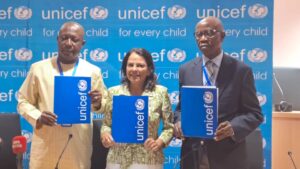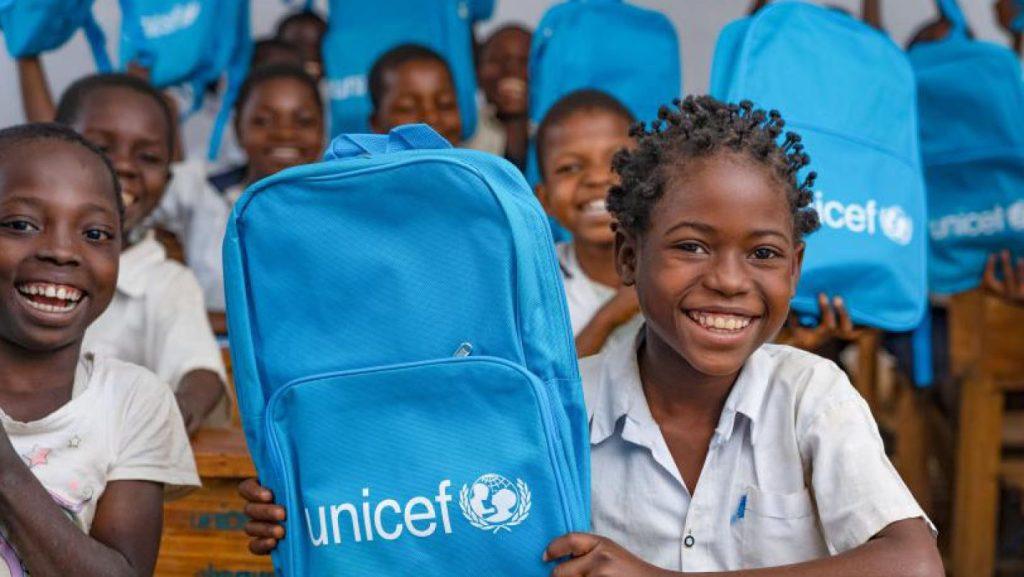On July 3, 2024, UNICEF, Diamond Award for Media Excellence (DAME) and the Nigeria Guild of Editors (NGE) met with some editors in Lagos in continuation of the partnership to protect children’s rights and welfare with the discussion focused on polio and malnutrition in Nigeria.
The Memorandum of Understanding (MOU) earlier signed on April 19 by UNICEF, DAME and NGE aims to leverage the influence of the media to promote and protect children’s rights across the country.
The collaboration according to the details of the agreement is also expected to focus on advocacy and awareness campaigns, capacity building for journalists, shared research, recognition of impactful media contributions, and influencing policy to support children’s rights.
Undoubtedly, the media as the UNICEF Representative in Nigeria, Said Cristian Munduate noted has immense potential to advocate for the welfare of children by not only being able to inform public opinion but also influence the government to enact changes in support of children’s rights.
It is commendable that UNICEF is partnering with key media organisations like the NGE and DAME to “transform how children’s rights are reported and addressed in the media to ensure every child’s rights are respected, protected, and fulfilled.”
Children’s rights are part of the fundamental human rights which citizens of every country are entitled to and there is a need to ensure that they are guaranteed by all concerned.
Under the Social Responsibility clause in the Code of Ethics for Nigerian Journalists, it is required that journalists should promote universal principles of human rights, democracy, justice, equity, peace and international understanding.
Journalists and media organisations in the country have over the years through their reports have been promoting child rights but can still give the issue more attention.
Although the Code states that journalists should not identify, either by name or picture, or interview children under the age of 16 who are involved in cases concerning sexual offences, crimes and rituals or witchcraft either as victims, witnesses or defendants there are still many media reports which violate this requirement.
The promise by NGE to uphold the integrity of journalism by focusing its members’ collective expertise on sensitive and impactful reporting concerning children’s rights is reassuring that the media will live up to expectations more than before.

We also agree with Mr Lanre Idowu of DAME that recognition through awards focusing on issues such as child rights, education, and health, will spotlight and incentivise the media to cover stories that can lead to substantial social impact.
As provided for in the agreement, relevant training programmes should be developed and offered to journalists to improve reporting on vulnerable populations and share up-to-date research to enrich media content.
Regarding the issue of polio and mutation, the media must support UNICEF’s call to maintain high vaccination coverage and ensure that everyone, especially in areas with low vaccination rates, receives a full course of polio vaccines.
Through editorials, informed analysis and other reports parents must be reassured of the need to get their children vaccinated in parts of the country where there are still doubts about the safety of Oral poliovirus vaccines (OPV).
READ ALSO: Journalists urged to prioritise their health amid stressful work conditions

